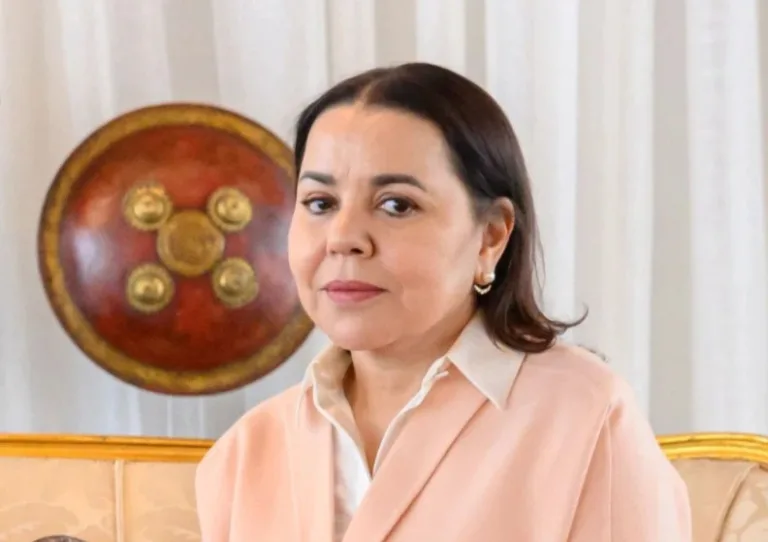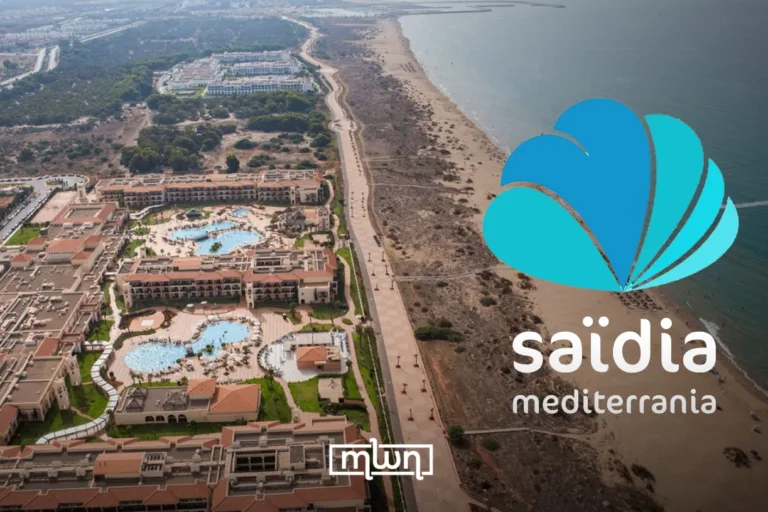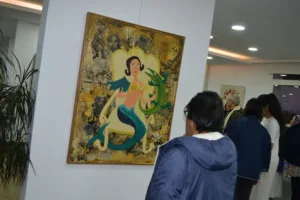Rabat – Nabil Slitine, CEO of the Downtown Hotel Corporation and leader of the M Avenue Marrakech project, was one of the ten leading figures celebrated and honored at the annual “Luxury Network” awards ceremony held in Marrakech on February 10.
Jointly run by Slitine and the Downtown Hotel Corporation (DHC), the M Avenue project is located between the Convention Center and Menara Gardens.
The ground-breaking concept was launched in 2017 and includes a range of lodging options, including the well-known Pestana CR7 owned by Cristiano Ronaldo, in addition to apartments, shops, restaurants, cafes, galleries, health and wellness facilities, and a cultural hub.
Alongside the Four Seasons, the project’s central attraction, M Avenue Marrakech runs a real estate portion estimated at 95,000 square meters.

Awards ceremony during the Luxury Network event
In 2017, DHC and Four Seasons Hotels & Resorts inked a contract for the additional development of 96 residences as part of the Four Seasons Marrakech Private Residences and M Avenue brands.
Customers may take use of all the amenities provided by the Four Seasons hotel in Marrakech, including valet parking, security, and a luxurious concierge service.
The M Avenue project covers 5 hectares of land for a total investment of MAD 1 billion ($99.5 million). It features 600 parking places, 120 stores, and a 3,000 square meter exposition hall with a 350-seat theater.
This was the first time Morocco has hosted the famous Luxury Network annual ceremony, which is run by the Luxury Network international.

The Luxury Network event in Marrakech
The Luxury Network Awards
Every year, a number of Moroccan and foreign enterprises convene at the Luxury Network Awards event in an attempt to exchange best practices and establish collaborations with emerging national and international businesses.
The clubs’ previous editions took place in several opulent capitals such as London, Dubai, Istanbul, and many others.
This year, the esteemed worldwide club, founded by Fares Ghattas, decided to hold its event in the enchanting city of Marrakech, topped with awards and accompanied by speeches from prominent business figures, as well as artistic performances.
During this occasion, the president of the Luxury Network Morocco, Ahmad Sleiman, reaffirmed the main goal of the awards, which is to honor Moroccan businesses and provide them with global exposure while advancing the “Made in Morocco” label.
According to the event organizers, the choice of Morocco, more particularly Marrakech, to present its prestigious annual awards to the top luxury brands in the world is a fair recognition of the exquisite values of Moroccan cultural heritage, its codes of authenticity, and its rich history.

Business Networking
Attendees honored the ten businesses receiving awards with the presence of several club representatives from the Luxury Network’s forty cities worldwide. M Avenue Marrakech was one of the companies to receive the Luxury Network International Award.
The birth of M Avenue Marrakech
Following the Four Seasons project’s success, the concept for M Avenue emerged. “We could have created an extension to the hotel, but thanks to the sanitary crisis we were going through at the time, we were forced to think about other types of projects,” Slitine told the local media in a recent interview.
“We had a long debate about whether to open or wait, but I’m a very optimistic person. I think that opening a project of this scale sends out a very strong message that life goes on,” he added, stressing that everyone yearned to return to a regular life filled with diverse experiences such as the ones M Avenue provides.
The interview was also an opportunity for Slitine to talk about the cultural aspect of its “Meydene” project, an interactive cultural hub located in the middle of M Avenue.

Global CEO of the Luxury Network International Fares Ghattas (right) and President of the Luxury Network Morocco Ahmad Sleiman (left)
The Moroccan enthusiast stated that the entire project would not have been possible without this cultural component, which is the part and parcel of the project.
“This was a real challenge because we had to think of a concept that was different, that was neither a museum, nor a gallery, nor an exhibition, since all these things already exist in Marrakech,” Slitine stressed.
He went on to say that the idea was also to employ technology to meet the demands of the younger generation while emphasizing the need to keep the message simple.
“We often tend to say that culture and art are elitist. With Meydene, the aim was to democratize the notion of culture,” Slitine concluded.
Read also: Samira Haddouchi: The Muse Behind Moroccan Caftan Renaissance
















